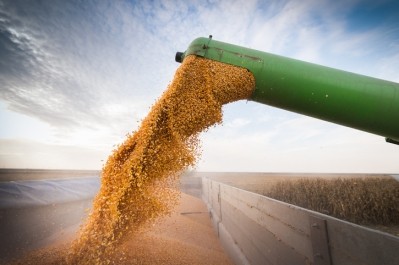Profit decline: Cargill cites challenges in global grain trading

The company said its adjusted operating earnings dropped 8% year-on-year to US$948m in its Q2 2018 against last year’s strong comparative of $1.03bn. Its net profit for the quarter declined to US$924m - a drop of 6% from $986m a year ago.
It said its Q2 revenues rose 8% to $29.2bn.
For the first half ended November 30 2017, Cargill said its adjusted operating earnings stood at $1.84bn, down 1% from last year. Its first-half net earnings increased 3% to $1.9bn.
The company said its origination and processing results were down moderately from last year’s quarter.
“Another year of very large US corn and soybean crops added to the buildup in global stocks. Although global demand continues to grow, today’s abundant supplies have weighed on markets, diminishing volatility and trading opportunities.”
However, the company noted trading performance in that segment in North America was ahead of last year as was oilseed processing in Asia.
Premix and feed additives business performing
Cargill said its adjusted operating earnings in animal nutrition and protein narrowly exceeded last year’s strong second quarter. “Animal nutrition earnings rose across the global business, with improvement led by premix and feed additives.”
Protein results in North America decreased slightly against a strong comparative period. As cattle costs moved up, retail demand for beef remained brisk, as did exports of US beef, said the company.
The protein segment’s global poultry business trailed the year-ago quarter, as good performance in parts of Southeast Asia was offset by softer earnings elsewhere, added Cargill.
Acquisitions, joint ventures
Cargill CEO, David MacLennan, noted that, during the quarter, the company announced more than $1bn in agreed acquisitions, joint ventures and new investments in facilities.
Several acquisitions it completed in December are aimed at expanding the company's interests in animal micronutrition. It purchased Iowa-based, Diamond V, a developer and manufacturer of natural feed additives, known as microbials, designed to improve animal health and performance by optimizing digestive function and immune strength. That acquisition, it said, complemented an earlier realized partnership with Austria’s Delacon, a plant-based feed additives producer.
“Both investments support the market shift toward sustainable, natural feed ingredients that improve animal health and embrace changing consumer values.”
Cargill also recently acquired Brazilian cattle feed producer, Integral Animal Nutrition. It specializes in free-choice minerals aimed at helping grazing cattle meet their nutritional needs.
It also recently bought full ownership of its premix joint venture in South Africa, which it said increases its presence in a region where protein demand is growing.
Cargill is also in the process of finalizing a joint venture with UK based, Faccenda Foods, a partnership targeting food retailers and foodservice companies in that market with fresh chicken, turkey and duck meat.
Sale of Swiss animal nutrition business
In November 2017, Cargill also announced the sale of its Swiss animal nutrition business to German investor group, Aurelius
A spokesperson for Cargill told us then about the rationale for the divestment of the Swiss feed business:
"We conducted a full operational and geographical review of European operations, and decided it was in the best long-term interest of our organization to divest of our animal nutrition business in Switzerland. We are confident that Aurelius is the right new owner for this business and that they will continue to meet the needs of Swiss customers. We remain committed to our successful animal nutrition businesses across Europe, and will continue to explore opportunities to further grow our business in this important market."
When pressed on whether the Swiss division had not been performing as well as Cargill had envisaged, she said:
"We made a strategic business decision in the best long-term interest of all stakeholders to find a new owner who could take a localized approach, grow the business and continue to serve the needs of Swiss customers."
This week also saw Cargill reach an agreement to acquire US company, Pro-Pet, which is an Ohio-based manufacturer of private label and co-manufactured pet foods.















